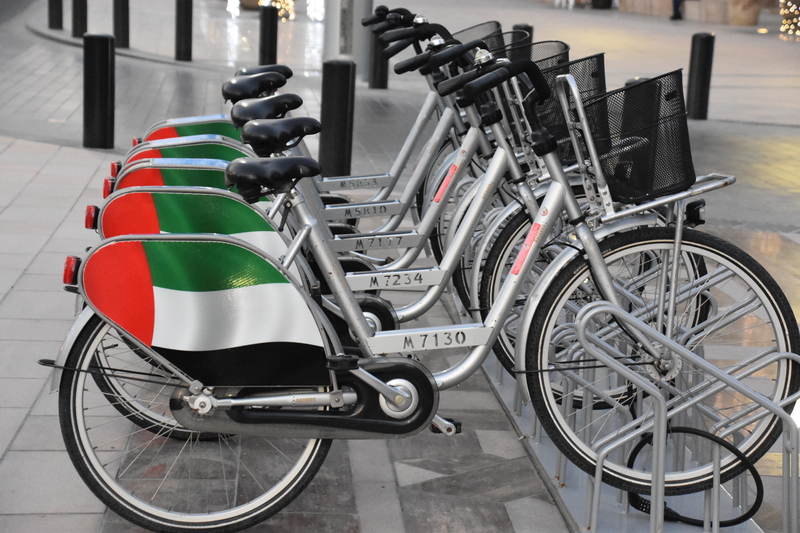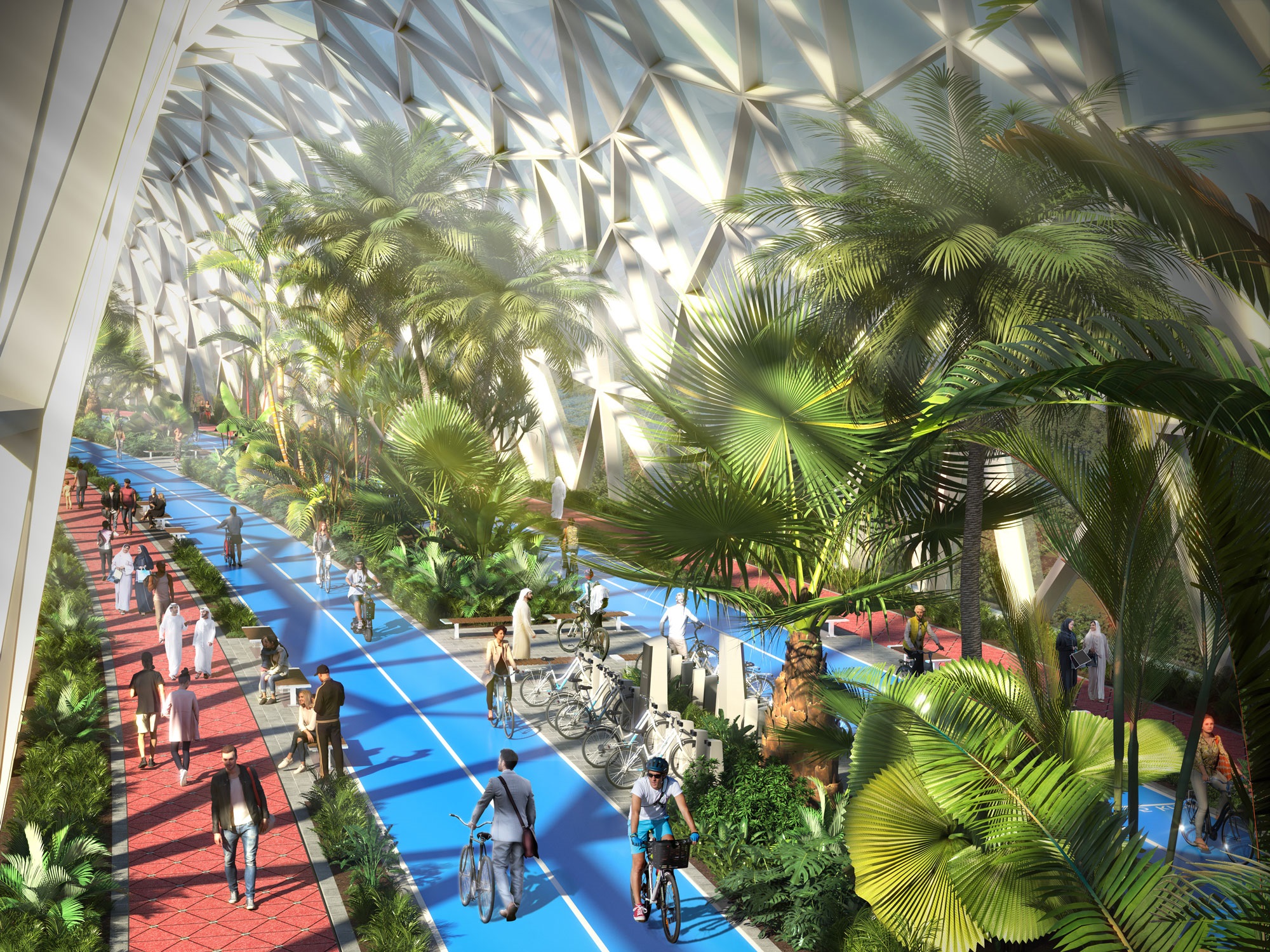
URB, an urban design consultancy, has unveiled a masterplan to make Dubai the world’s most bike-friendly city by 2040, surpassing even Amsterdam and Copenhagen.
The company’s plan is a “paradigm shift in urban mobility” for a city in which the car is king. URB’s study, Dubai Cycle City 2040, envisions various types of cycling infrastructure, including The Loop which will be a 93km “cycling highway”. The goal is to allow residents to cycle or walk to key services and locations within the city within minutes.
“By 2040, Dubai’s car-centric population is expected to more than double, reaching eight million urban dwellers,” said the company. “Dubai’s urban evolution and sprawl have made cars a necessity for travel and, thus, an indispensable part of the everyday lifestyle. As such, flipping the mode of travel towards cycling requires more than a new way of thinking in mobility; it requires entrepreneurship.”
Baharash Bagherian, chief executive of URB, said urban planners have evolved to become changemakers. “It is no longer about just planning new sustainable cities,” he said. “It is about planning new types of assets for existing cities with a sense of purpose, to make them more sustainable. It is about becoming an agent of change. The Dubai Cycle City 2040 is an embodiment of that entrepreneurial spirit.”

The project, still in the research stage, aims to provide additional utilities and amenities to various neighbourhoods, including urban agriculture, social spaces and sports facilities. It is also designed to accelerate Dubai’s 20-minute city initiative where city dwellers should to be able to walk or bike to 80% of their daily needs and destinations in just 20 minutes. This means that in the coming years, half of Dubai's population should be living within 800m of the nearest public transportation facility.
According the study by URB, most of the 1,000km-long cycling network will connect to public transport to decarbonise the last mile. Elevated cycling tracks are proposed in areas which lack enough space for dedicated or shared lanes.
Various types of cycling bridges will re-connect communities that are disconnected by major highways. The Loop – an enclosed and at times elevated cycle way – will also have so-called 'pocket parks', areas of greenery that are intended to facilitate exercise and social and leisure gatherings, as well as sports facilities.
URB’s proposal also supports Dubai’s 2040 Master Plan - unveiled in 2021 - that is intended to increase, among other things, public beach spaces and nature reserves.











